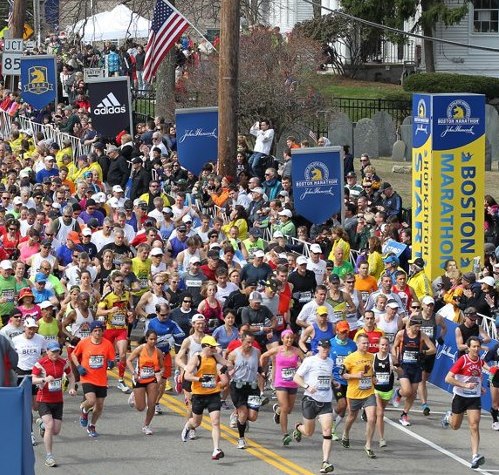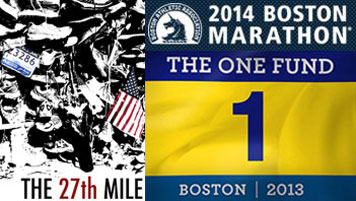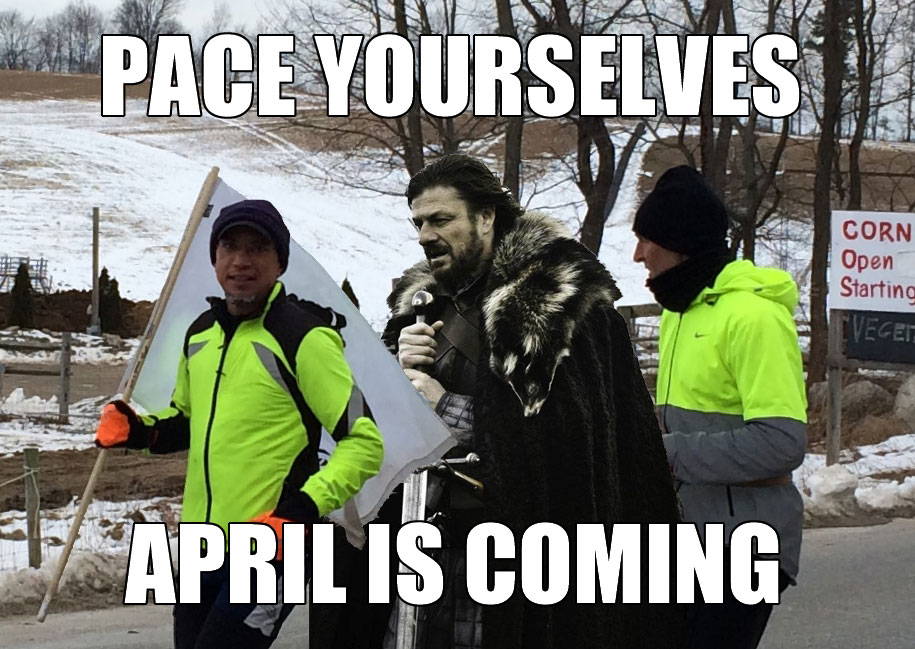It’s only March, and already the media coverage of this year’s Boston Marathon is more intense than ever before. Unfortunately, most of the coverage ignores the majority of the runners who will line up in Hopkinton on Patriots’ Day, the Boston qualifiers.
 Approximately 30% of the entries for Boston this year went to non-qualifiers. Of the remainder, only a very few have any hope of winning. That leaves the qualifiers, about 69.9% of the field, who make up the true heartbeat of the Boston Marathon for me and many of my friends inside the running community.
Approximately 30% of the entries for Boston this year went to non-qualifiers. Of the remainder, only a very few have any hope of winning. That leaves the qualifiers, about 69.9% of the field, who make up the true heartbeat of the Boston Marathon for me and many of my friends inside the running community.
As the world’s oldest annual marathon, the Boston Marathon has always carried special significance, making it one of the few races (other than the Olympics) to get any attention outside of the running community.
In years past, for a week or two prior to Patriots’ Day, marathon updates ranked with Celtics and Bruins news in the Boston media (though always lagging behind the Red Sox). The results of the race would make sports pages around the world the next day.
But after the bombing at last years race, there’s a massive hullabaloo in the media across the country whenever there’s any new news related to the Boston Marathon.
 As a runner living in the Boston area, I’m inundated with marathon coverage. Multiple stories and TV segments discuss the bombing, its aftermath, and charity efforts surrounding the marathon, for both the victims of the bombing and other worthy causes. There are even a few stories about the elite runners, a reminder that the marathon is not only a celebration of civic pride and resiliency in the face of terrorism, but it’s a race, too.
As a runner living in the Boston area, I’m inundated with marathon coverage. Multiple stories and TV segments discuss the bombing, its aftermath, and charity efforts surrounding the marathon, for both the victims of the bombing and other worthy causes. There are even a few stories about the elite runners, a reminder that the marathon is not only a celebration of civic pride and resiliency in the face of terrorism, but it’s a race, too.
It’s not wrong that the great majority of media interest involves bombers, charity runners, or Kenyans. Just like it’s not wrong that people like Neil Young or Justin Beiber. People like what they like, and the media caters to that.
But the 69.9% see things differently. For them, the significance of Boston is increased by the fact that most people can’t get in unless they beat the qualifying standard time for their age and gender in another race. The standards are by design difficult enough to eliminate the majority of runners, so qualifiers have always taken justifiable pride in earning a number for the race.
This year, the unprecedented demand for entries to the race meant that many of us, after sweating for months or years to meet the qualifying standard, still needed to sweat out the registration process to see whether our precious numbers would be snatched from us at the last moment.
On top of that, it’s always been hard for qualifiers to go out and run their best after spending the hours before the race sitting outdoors in a field, often in nasty weather. This year, the new security procedures implemented in reaction to last year’s bombing will make it even more difficult for qualifiers to run their best race.
Given all the challenges we have to overcome just to make it to the starting line, we qualifiers want people to know we take our Boston Marathon seriously as a race, not just as a 26.2 mile parade. The fact that that tends to get lost in the hubbub makes me a little sad.
So this one’s for you, my brethren (and sistren) of the 69.9%. May the wind be at your backs on (a cool, but dry) Patriots’ Day!


Well said. I ran 2013 as part of my quest to run all the majors and Before I ran Boston I didn’t really understand just how iconic the race is. Having run it and experienced the aftermath I certainly got it! This is a very special race for the 69.9% as you say! a real runners race and I know fully understand how important that BQ time is. Boston Strong!
You’re so fortunate to be running. I ran a BQ – 1:29 which in any other year would’ve been enough, but this year, it wasn’t. I broke my ankle four months later and am now on the long road to getting back into the best shape of my life just to have a hope of ever BQing again. Disheartening to say the least, but I will continue to try. That’s kind of the point, isn’t it?
Sorry about your ankle. It took me 10 years after my first marathon before I finally qualified. Keep trying, and enjoy the process!.
I ran boston in 2010, it was one of the best races I’ve ever run…while i didn’t even care about running for time, i ran to enjoy every minute (or 5 as i passed Wellesley,) because i’m not sure if i’ll ever be able to BQ again. so its not about running your best race at boston, but the time its taken most of us to get the privilege of toeing the iconic start line
I’ve done Boston once as a BQ, doing it this year with a charity bib (missed BQ by 9 minutes this year). Didn’t expect any media attention then, wouldn’t expect any now. Runners know how hard it is to qualify, but the general public doesn’t, and doesn’t really care.
Also agreed. It is a prestigious marathon, probably the only one of its type outside of the Olympic Trials and it should remain so.
IF (and that’s a big, huge IF) I ever decide to run again, I’ll do it by qualifying. If I could even do so. But if I can’t get a BQ time, that will be on me.
If I can do it, Bob, you can. I’m sure of that!
Pingback: Y42K?